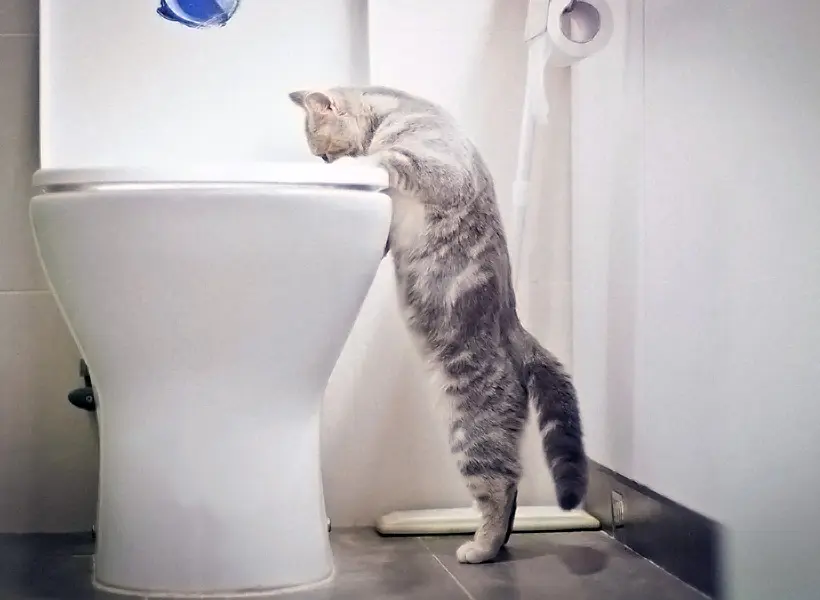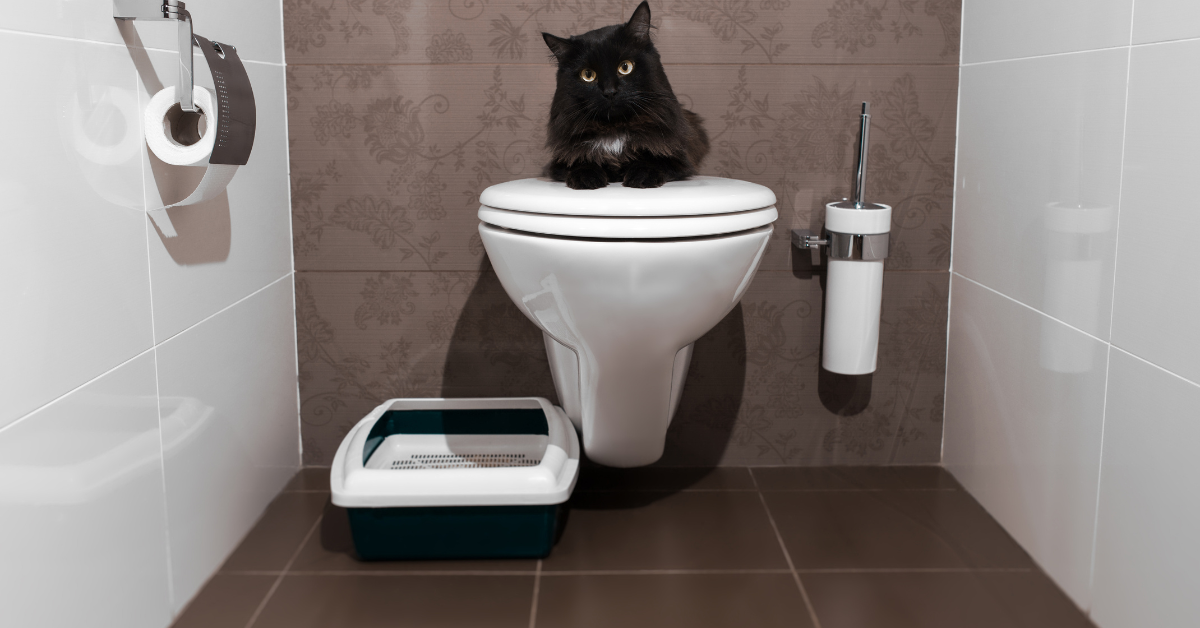Explanations Why You Must Never Get rid of Animal Waste Down the Toilet
Explanations Why You Must Never Get rid of Animal Waste Down the Toilet
Blog Article
We have unearthed this great article on 4 Reasons Why Dog Poop Cleanup is Important below on the net and concluded it made good sense to quickly share it with you on this page.

When it involves getting rid of waste, particularly animal waste, lots of people commonly resort to the hassle-free alternative of flushing it down the bathroom. However, this apparently simple remedy can have severe effects for the setting and public health. In this article, we'll check out why flushing pet waste down the bathroom is a bad concept and offer alternate methods for appropriate disposal.
Introduction
Correct waste disposal is critical for keeping environmental sustainability and public health. While it might appear harmless to flush animal waste down the commode, it can bring about numerous concerns, both for the atmosphere and human health.
Risks of flushing pet waste
Ecological effect
Purging animal waste introduces unsafe germs and virus into rivers, which can negatively influence marine environments. These virus can pollute water resources and damage aquatic life, interfering with delicate ecosystems.
Public health concerns
Pet waste includes damaging microorganisms such as E. coli and Salmonella, which can pose major health and wellness dangers to human beings. Purging pet waste down the commode can contaminate water supplies, leading to the spread of diseases and infections.
Alternatives to flushing
As opposed to purging animal waste down the bathroom, there are a number of alternate disposal methods that are a lot more environmentally friendly and hygienic.
Composting
Composting animal waste is an environmentally friendly way to get rid of it. By composting, organic matter is broken down right into nutrient-rich soil, which can be used to feed gardens and plants.
Land fill disposal
Dealing with animal waste in a land fill is one more option. While not as environmentally friendly as composting, it is a more secure alternative to flushing, as it prevents the contamination of water resources.
Family pet waste disposal systems
There are customized animal garbage disposal systems offered that securely and hygienically take care of pet waste. These systems frequently make use of enzymes to break down waste and eliminate odors.
Steps to appropriate animal waste disposal
To make sure proper disposal of pet waste, adhere to these actions:
Scooping and bagging waste
Frequently scoop and bag animal waste using naturally degradable bags. This avoids waste from polluting the setting.
Making use of assigned waste bins
Dispose of bagged animal waste in assigned waste bins, such as garden compost containers or landfill containers. Prevent flushing it down the toilet whatsoever prices.
Cleansing litter boxes and pet locations consistently
Regularly tidy can and pet dog areas to stop the buildup of waste and bacteria. Usage pet-safe cleansing products to preserve health.
Benefits of appropriate disposal approaches
Adopting appropriate disposal approaches for pet waste offers numerous advantages:
Reduced environmental pollution
Proper disposal techniques minimize the threat of environmental pollution, protecting waterways and communities from contamination
Lessened danger of water contamination.
By avoiding flushing animal waste down the bathroom, the risk of water contamination is substantially lowered, securing public health.
Boosted hygiene and health
Appropriate disposal approaches promote better cleanliness and hygiene, producing a more secure setting for both people and animals.
Final thought
In conclusion, purging animal waste down the toilet is damaging to the environment and public health. By taking on alternate disposal techniques and adhering to appropriate waste monitoring methods, we can reduce the unfavorable impact of animal waste and add to a cleaner, healthier planet.
Why website You Should Never Flush Animal Waste Down the Toilet
As a pet and property owner, cleaning up after your furry friends is important to ensure your property is clean and disinfected. However, when disposing of animal waste, many opt to flush it down the toilet. After all, it seems like the most convenient option, right? Unfortunately, this common practice can actually have harmful effects on your plumbing system and the environment.
What Comprises Animal Waste?
Animal waste refers to bodily excretions such as feces and urine from pets such as cats, dogs, and rabbits. These excretions contain bacteria, pathogens, viruses, and parasites that can harm humans and the environment. Some types of animal waste, such as feces from dogs and cats fed on processed foods, may contain harmful bacteria like E.coli, salmonella, and campylobacter. Flushing this type of waste down the toilet could pollute waterways and destroy the ecosystem.
Environmental and Physical Dangers of Flushing Pet Waste
In the environment, flushing waste can contaminate waterways, killing aquatic life and harming the ecosystem. The waste that might be considered flushing down the toilet could also adversely impact your plumbing and sewage systems in the following ways.
End Up in Sewage Treatment Plants
Flushing pet waste down the toilet can have a detrimental impact on sewage treatment plants and the overall water quality. Pet waste contains harmful bacteria and pathogens that, if not properly treated, can contaminate water sources and pose a risk to aquatic life and human health. Sewage treatment plants are designed to handle human waste and other biodegradable materials, but they are not equipped to effectively treat the bacteria and pathogens present in pet waste.
Clog Pipes
Density: Animal waste is often dense and easily gets stuck in pipes. Unlike human waste, which is designed to be flushed away smoothly, pet waste contains elements like grass, dirt, raw hide, hair, and other materials that can create blockages in the plumbing system. Potential damage: Flushing pet waste, even in small amounts over time, can lead to costly repairs. It can cause cracked pipes and other plumbing issues, resulting in the need for professional intervention. Public and private waste management systems: Flushed pet waste can also cause problems in public and private waste management systems. It can overload septic tanks and other sewage treatment systems, leading to backups. Leading to Untreated Sewage Overflows
Flushing excessive amounts of pet waste can overwhelm the sewer system's capacity to handle the additional waste load. This can cause backups and overflows, leading to untreated sewage entering waterways.
Additionally, pet waste, particularly when combined with other non-biodegradable items like wipes or litter, can create sewer pipe blockages. These blockages prevent the proper flow of wastewater and can cause sewage to back up and overflow.
Flushing Pet Waste Could Affect Human Health
In addition to environmental hazards, flushing pet waste down the toilet could be detrimental to human health. The bacteria found in animal excrement exposed to sewage might cause infectious diseases. For that reason, people whose immune systems have been weakened by particular diseases, medical treatments, or age can be in danger of disease from even the smallest bacterial exposure in contaminated water.
Alternative Ways to Responsibly Disposing of Pet Waste
The most secure and sustainable way of disposing of pet waste is by composting it. Cat litter can be useful fertilizer for your garden if you compost it safely and appropriately. However, it is essential to do this correctly to prevent exposure to the dangerous parasites that the waste might have. It is best to research before composting your pet waste, as certain toxins can persist even after the composting process is finished.
Another safe way to dispose of pet waste is by bagging and throwing it in the trash bin. Here, it is crucial to choose the appropriate bag for disposal, such as biodegradable bags that quickly decompose, reducing the carbon footprint of landfills.

Do you really like reading up on Why you should never flush dog poop down the toilet? Write a remark down below. We'd be pleased to listen to your responses about this article. Hoping that you visit us again in the future. Remember to set aside a second to share this write-up if you appreciated it. Thank you for going through it.
Call Today Report this page